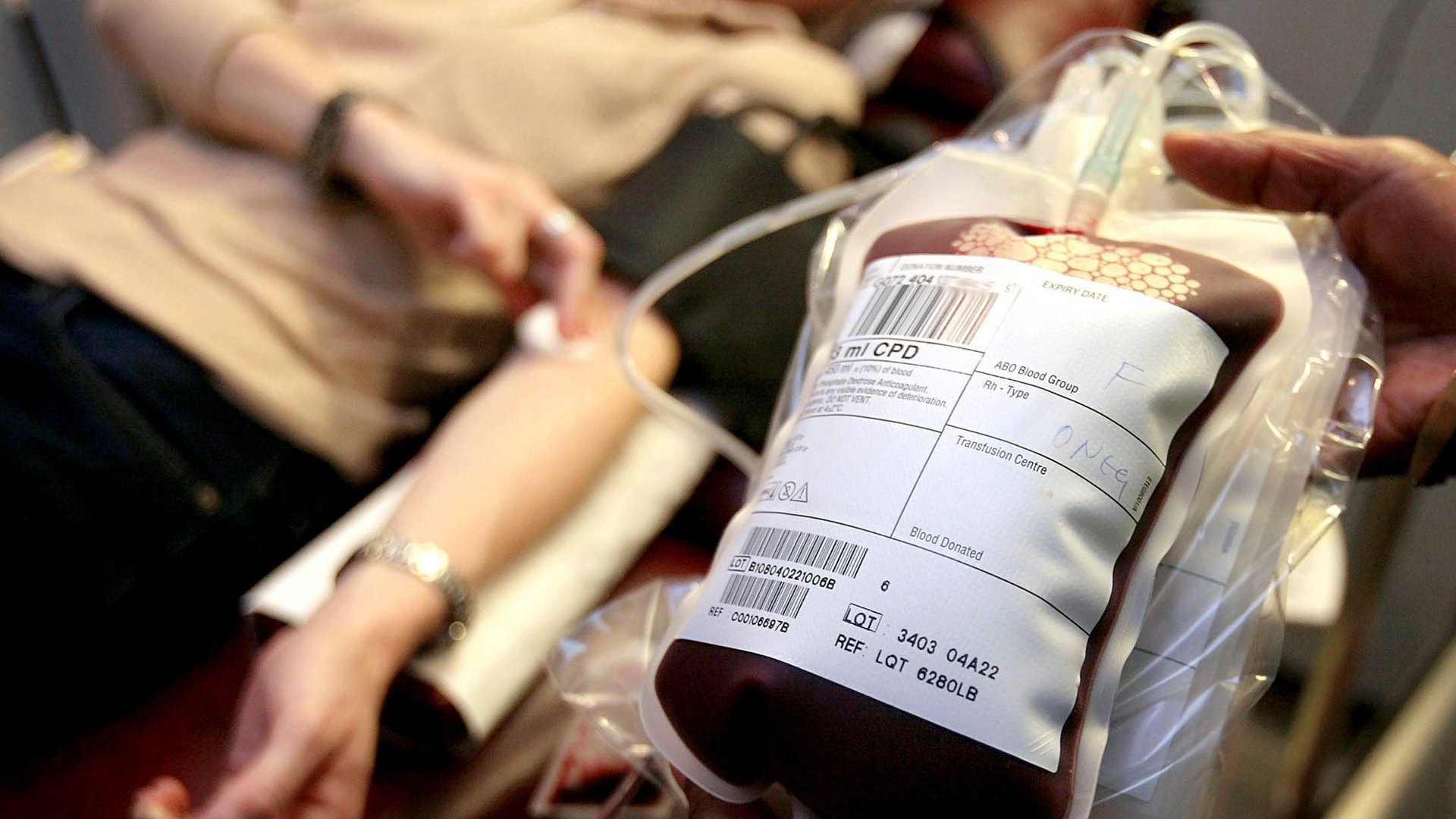Why hospitals fear a critical blood shortage as the US reopens
So far, the United States hasn’t seen severe blood shortages as a result of the Covid-19 pandemic. But it may be about to, according to data from America’s Blood Centers.


So far, the United States hasn’t seen severe blood shortages as a result of the Covid-19 pandemic. But it may be about to, according to data from America’s Blood Centers.
The nonprofit oversees 600 or so independent blood centers, which together provide about 60% of blood donations to US hospitals. It tracks the inventory of type O red blood cells in hospitals’ supplies (O positive is the most common blood type, while O negative is less common) as an indicator of total blood supply.
Blood donations soared at the beginning of the pandemic, says Kate Fry, the CEO of America’s Blood Centers. Donation centers were deeply concerned about impending shortages, as they would be in the wake of a hurricane or mass shooting. Hospitals want enough blood to cover procedures for at least three days; they run into dangerous territory if they have a day or less on hand. So in March, donation centers put out advertisements asking people to come in.
They got the enthusiastic response they needed. But then a funny thing happened: “We don’t want to over-collect,” says Heidi Ognibene, the director of operations at the Rock River Valley Blood Center in Illinois. “So we scaled back.”
It sounds counterintuitive, but here’s why: Blood and its components, including red blood cells, plasma, and platelets, can only stay on the shelf for so long. Although plasma can be frozen and stored for longer, it takes time for it to thaw properly, which means it isn’t available for emergency use.
This means that hospitals and blood donation centers have to keep a very thin margin between supply and demand. If donation centers collect too little blood, hospitals won’t have enough transfusions for patients. If they collect too much, the blood will spoil before it can save someone’s life.
Despite early concerns over blood shortages, the thousands of people who have been hospitalized with Covid-19 typically haven’t needed extra blood. And with thousands of elective surgeries cancelled at the recommendation of the Surgeon General and fewer car crashes as the result of stay-at-home orders, there was even less demand for blood than usual. Fry said that hospitals’ demand decreased by 30% to 40% compared to what they’d expect this time of year.
But now, blood donation centers are running into a new problem: It’s been about two months since the surge of donations. And now that some hospitals are beginning to conduct elective surgeries again, centers are starting to worry that they won’t be able to collect the blood they need.
A little less than half of blood donations occur at drives—events at schools or offices where a large number of people can donate at their convenience. The pandemic forced many of those drives to be cancelled.
Ognibene says that within her donation centers, 35 of the 45 drives planned for April were cancelled. The American Red Cross, another non-profit that makes up about 40% of hospital-based blood donations, was also hit hard.
“Thousands of Red Cross blood drives have been canceled across the country due to coronavirus concerns, resulting in hundreds of thousands of fewer blood donations,” says Stephanie Rendon, a spokesperson for the organization. “While it is not uncommon from blood drives to get cancelled due to weather and other factors, the number of blood drives cancelled since March has been unprecedented.”
Most blood centers are continuing to take donations, but they require people to make appointments ahead of time. Centers only collect donations from healthy individuals, but now they’re putting even more space between beds to increase the distance between donors. This means that fewer people can donate at a time.
Ognibene fears that without drives, it’ll be much harder to meet hospital demands for blood. If businesses change their design and keep people working from home, there won’t be office blood drives, she says.
That’s why it’s more important than ever to make an appointment to donate any kind of blood you can at your local center. Both the American Red Cross and America’s Blood Centers have zip code-based donation center locators. If you’d like to directly support your community hospital, Fry recommends calling them, asking which center they take blood from, and booking an appointment with that provider.